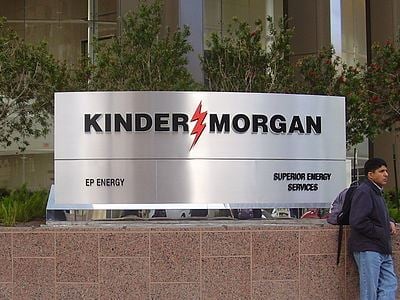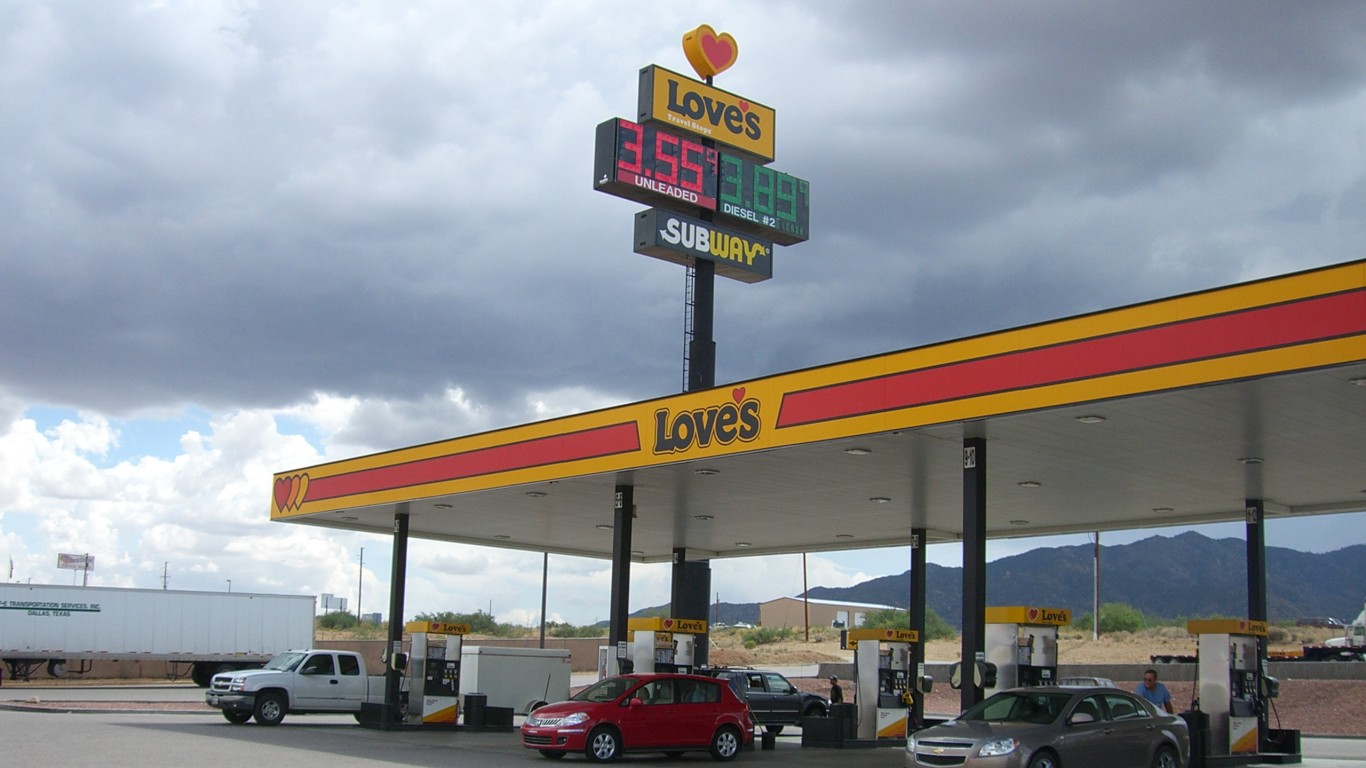

When Kinder Morgan Inc. (NYSE: KMI) reported first-quarter results after markets closed Wednesday, the energy infrastructure company also boosted its dividend by 60% to $0.80 per share annually. The company slashed its dividend from $2.04 a share to $0.50 in December 2015 and has maintained that level ever since.
The increase is in line with a plan announced last summer to increase the annual dividend to $0.80 and keeps the company on track to meet its announced goal of $1.25 per share by 2020. Kinder Morgan anticipates raising its annual dividend to $1.00 a share next year and to $1.25 in 2020.
During the first quarter, the company also repurchased $500 million in common stock as part of a $2 billion share buyback program.
Following the first-quarter report, Merrill Lynch reiterated its Buy rating and $20 price objective on Kinder Morgan. The shares closed up 0.9% at $16.17 on Wednesday and traded up about 2.7% at $16.60 Thursday morning. The consensus analyst target price is $21.60.
Analysts at SunTrust Robinson Humphrey cut their price target on the stock from $23 to $21.
Kinder Morgan faces some challenges. First there is the continuing opposition to the expansion of its Canadian subsidiary’s Trans Mountain pipeline. Earlier this month, Kinder Morgan Canada suspended further spending on the C$7.4 billion project citing uncertainty related to construction through British Columbia, whose government opposes the expansion.
Even a promise from Prime Minister Justin Trudeau to push the project through to completion may not be enough to get Kinder Morgan to continue working. On Thursday’s conference call, CEO Steve Kean said:
As we said [in early April], it’s become clear this particular investment may be untenable for a private party to undertake. The events of the last 10 days have confirmed those views.
In the friendlier environs of Texas, Kinder Morgan began work on its $1.75 billion Gulf Coast Express pipeline project (GCX) to transport 1.98 billion cubic feet per day of natural gas from the Permian Basin to Agua Dulce, Texas, near Corpus Christi. The project is expected to be in service in October of 2019. Another Kinder Morgan pipeline system has agreed to transport about 1 billion cubic feet per day of Permian Basin gas to delivery points on other pipelines, including the GCX.
Natural gas takeaway capacity from the Permian Basin may become a serious issue for oil producers. New drilling is increasing the amount of associated natural gas that has no way to be exported from the basin. Producers have almost reached the limit they are allowed to burn off (flare), and it is questionable that the state regulator will allow them to exceed the limits even temporarily. If there is nowhere for the gas to go, oil producers will have to stop pumping and crude oil prices — already at three-and-a-half year highs — could go higher.
That might be good news for Kinder Morgan, especially if it decides to cancel the Trans Mountain project, freeing up some capital to invest in a friendlier place with abundant demand. The catch is whether the company can build the takeaway capacity quickly enough to cash in.
Sponsored: Want to Retire Early? Here’s a Great First Step
Want retirement to come a few years earlier than you’d planned? Or are you ready to retire now, but want an extra set of eyes on your finances?
Now you can speak with up to 3 financial experts in your area for FREE. By simply clicking here you can begin to match with financial professionals who can help you build your plan to retire early. And the best part? The first conversation with them is free.
Click here to match with up to 3 financial pros who would be excited to help you make financial decisions.
Thank you for reading! Have some feedback for us?
Contact the 24/7 Wall St. editorial team.


